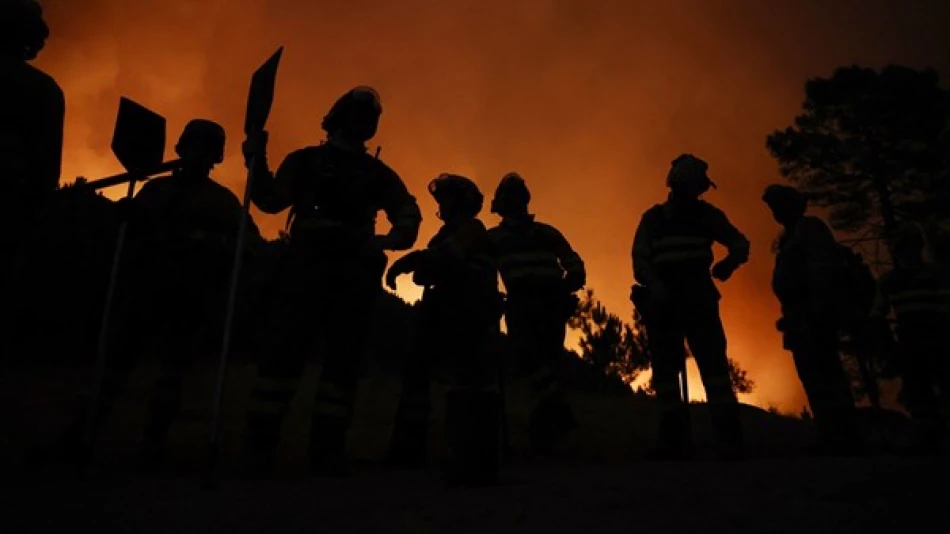
Spain Battles Devastating Wildfire West of Madrid, Intensifies Firefighting Efforts
Spain Battles Devastating Wildfires as Climate Crisis Intensifies Mediterranean Fire Season
Hundreds of firefighters and volunteers are locked in a second day of intense combat against destructive wildfires west of Madrid, as Spain confronts what experts warn could become another catastrophic fire season driven by extreme weather patterns and prolonged drought conditions across the Mediterranean region.
Fires Rage Across Multiple Provinces
The most severe blaze is tearing through Ávila province, where powerful winds are feeding flames through vast expanses of highly flammable shrubland. European Earth monitoring system Copernicus has already recorded approximately 3,000 hectares of forest and woodland destroyed in the Cuevas del Valle area alone.
Simultaneously, firefighting teams are battling a separate wildfire in Las Hurdes, located in the Cáceres region, where authorities have ordered the precautionary evacuation of around 200 residents from their homes.
A Pattern of Escalating Fire Risk
These latest fires underscore Spain's growing vulnerability to extreme wildfire events, a trend that has accelerated dramatically over the past decade. The country experienced its worst fire season on record in 2022, when blazes consumed over 300,000 hectares—nearly triple the annual average.
Climate Change Reshapes Fire Seasons
Spanish meteorologists have documented a concerning shift in fire patterns, with the traditional peak season extending earlier into spring and later into autumn. Rising temperatures, reduced rainfall, and more frequent drought periods have created tinderbox conditions across much of the Iberian Peninsula.
The current fires mirror similar early-season blazes that have struck other Mediterranean countries, including Greece, Italy, and southern France, suggesting a regional climate pattern that fire management experts describe as the "new normal."
Economic and Environmental Stakes
Beyond the immediate threat to lives and property, these wildfires carry significant economic implications for Spain's forestry sector and rural tourism industry. The affected regions in Ávila and Cáceres are home to valuable oak and pine forests that support local timber economies and serve as carbon sinks crucial for Spain's climate commitments under the Paris Agreement.
Emergency Response Infrastructure Under Pressure
The simultaneous fires are testing Spain's enhanced wildfire response capabilities, developed following devastating blazes in previous years. The country has invested heavily in aerial firefighting equipment and early warning systems, but the increasing frequency and intensity of fires strain these resources.
Spain's approach contrasts with countries like Portugal, which has pioneered community-based fire prevention programs, and France, which has focused on creating extensive firebreaks and controlled burning regimes. As climate pressures intensify, Spanish authorities may need to consider more aggressive prevention strategies beyond reactive firefighting efforts.
Most Viewed News

 Layla Al Mansoori
Layla Al Mansoori






